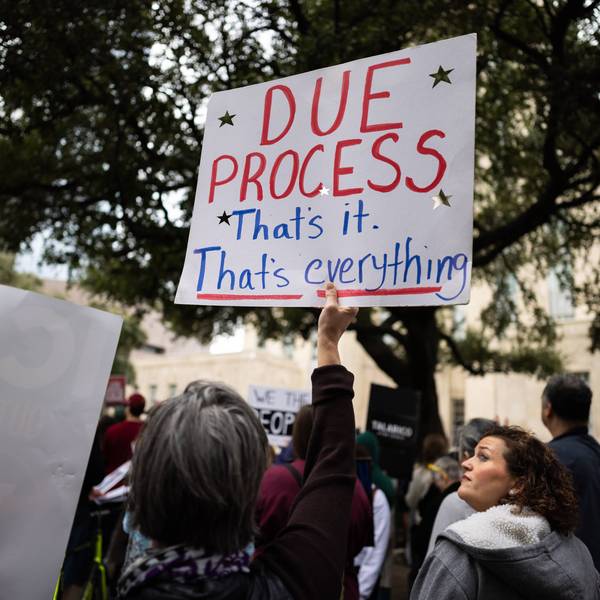The Associated Press, the largest news agency in the world, has officially eliminated the term "illegal immigrant" from its vocabulary, the news agency announced Tuesday.
Advocates for immigrant rights hailed the announcement as a "crucial victory" for the 'Drop the I-Word' campaign which has objected to the prolific use of the word to describe individuals. The campaign's motto--'no human being is illegal'--has become well-known and many news outlets, editors, and producers have vowed to avoid the discriminatory usage.
The phrase 'illegal immigrant' has now been taken out of AP's 2013 Stylebook, which now says the word 'illegal' should only be used to describe actions, not people.
AP Senior Vice President and Executive Editor Kathleen Carroll stated:
The Stylebook no longer sanctions the term "illegal immigrant" or the use of "illegal" to describe a person. Instead, it tells users that "illegal" should describe only an action, such as living in or immigrating to a country illegally. [...]
Except in direct quotations, do not use the terms illegal alien, an illegal, illegals or undocumented.
Do not describe people as violating immigration laws without attribution.
Specify wherever possible how someone entered the country illegally and from where. Crossed the border? Overstayed a visa? What nationality?
People who were brought into the country as children should not be described as having immigrated illegally. For people granted a temporary right to remain in the U.S. under the Deferred Action for Childhood Arrivals program, use temporary resident status, with details on the program lower in the story.
Carroll added that AP has been working to rid the Stylebook of many such labels and told Poynter, that the former use of the phrase "illegal" for people "ends up pigeonholing people or creating long descriptive titles where you use some main event in someone's life to become the modifier before their name." She added that the use was a "lazy device."
"This decision is a victory for immigrant communities," said rights advocate and journalist Rinku Sen in an op-ed on Wednesday. "We took a word that has been normalized by anti-immigrant forces and revealed it as unfit to print because it is both inaccurate and dehumanizing." Sen is publisher at the site Color Lines, the magazine for the Applied Research Center which initiated the Drop the I-Word in 2010. Designed as a public education campaign, the goal was "to eradicate the dehumanizing slur 'illegals' from everyday use and public discourse."
"The i-word opens the door to racial profiling and violence and prevents truthful, respectful debate on immigration," the campaign states. "No human being is 'illegal.'"
Similarly, Pulitzer Prize-winning journalist, Jose Antonio Vargas, who entered the country when he was 12-years-old and does not have legal permission to live in the United States, last Fall, pushed top news organizations such as The New York Times and the Associated Press to drop the term.
Vagas stated at an Online News Association conference in September, "The term dehumanizes and marginalizes the people it seeks to describe. Think of it this way, in what other context do we call someone illegal?"
Vargas also spoke to Poynter: "This was inevitable....What I hope is this is just the beginning of a conversation for newsrooms across America."
Sen adds:
The AP's new guidance is also a victory for journalists, who strive daily to be accurate and honest with their readers. News people have nothing if not our ability to dig underneath the labels, as the AP says, that provide convenient categories for complex people and problems. When communities also experience those categories as demeaning of their humanity, we have failed at our jobs. The AP just gave us a little more clarity about how to avoid that. They'd like to hear our reactions, so send them a little note.
For years, immigration restrictionists have been stopping all discussion cold with "what about illegal don't you understand?" Well, we did understand--that the word hid severe problems in the policy, that it has been applied selectively to people of color (undocumented, green-card holding, and citizens alike), and that it fuels hateful action.
_______________________



